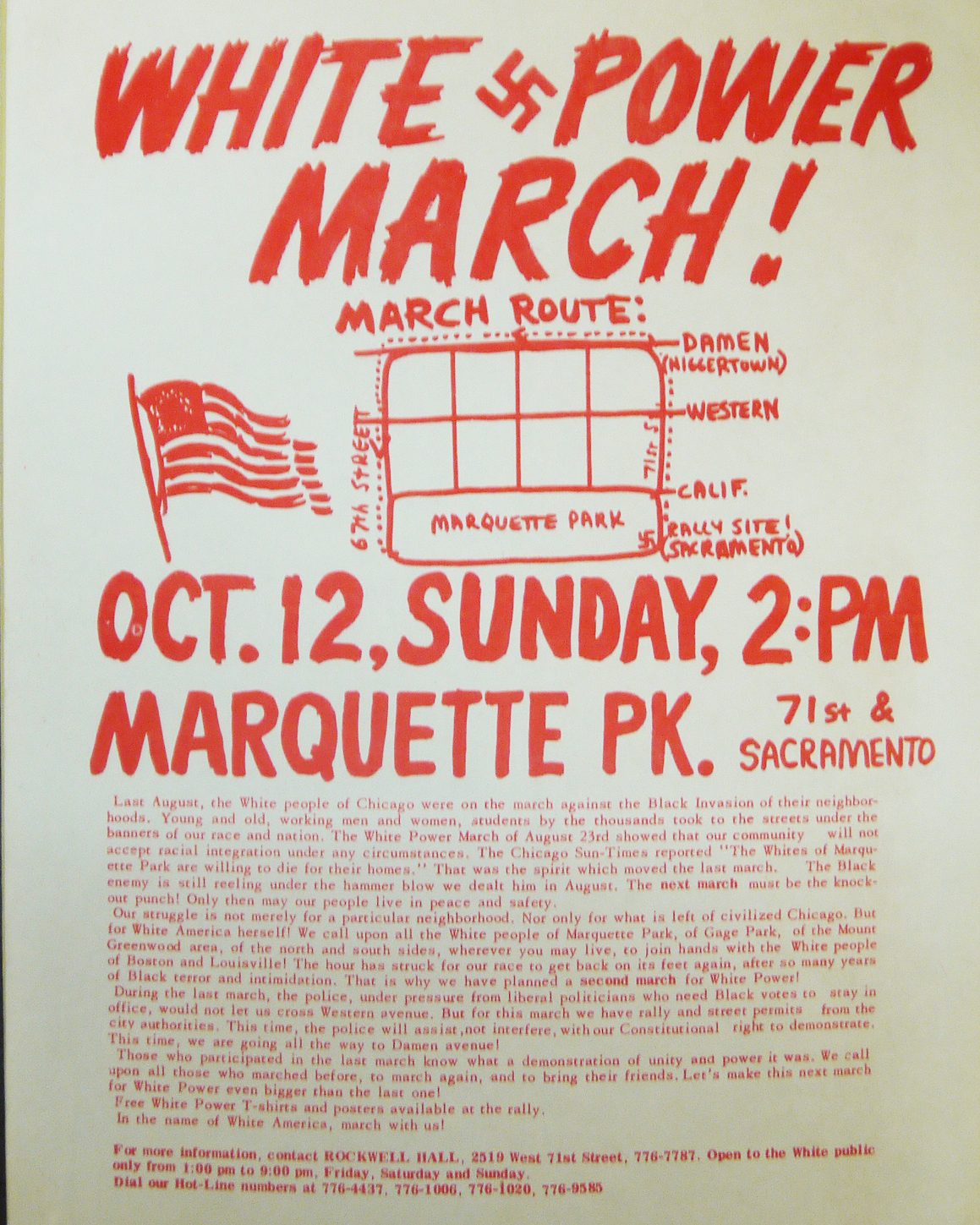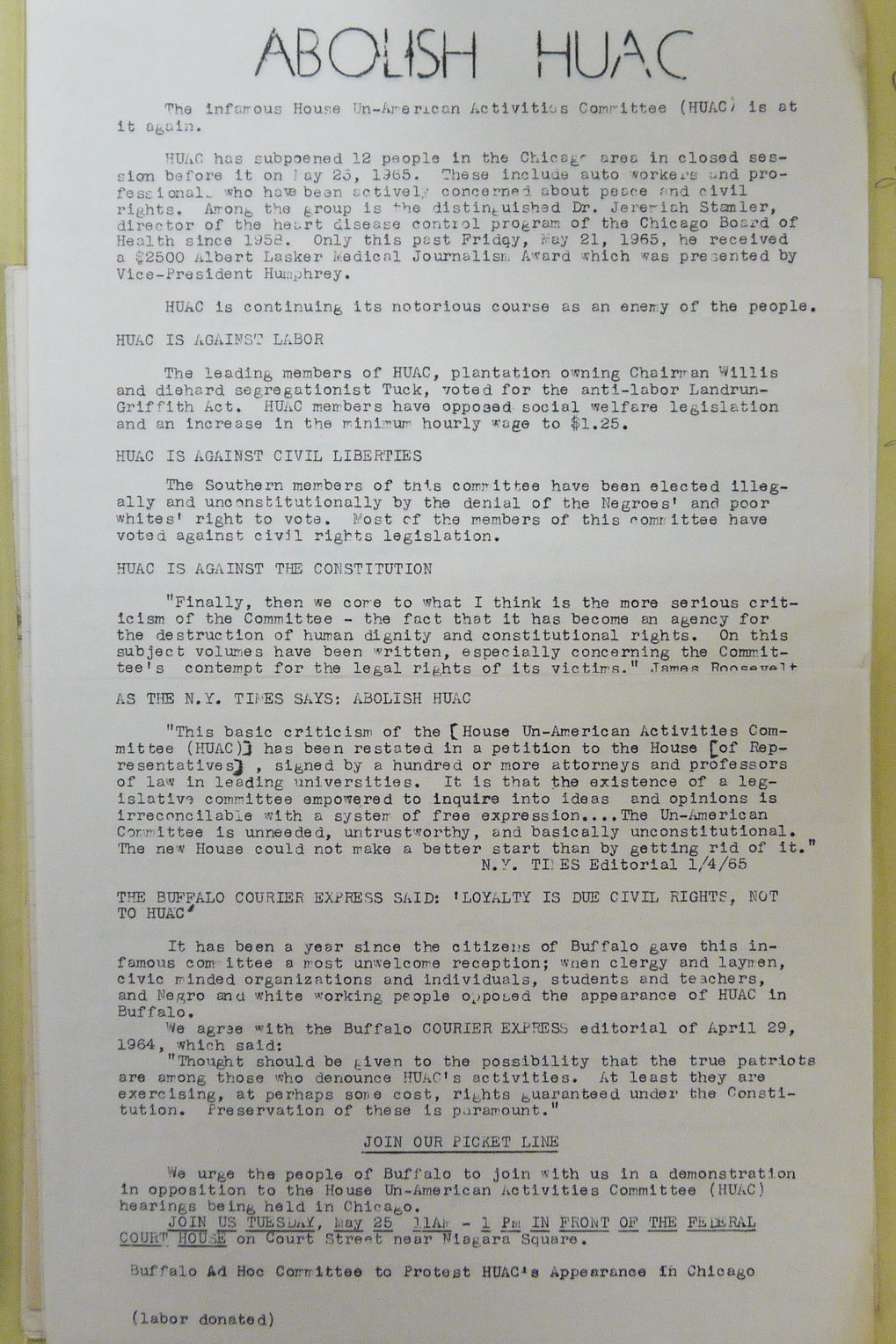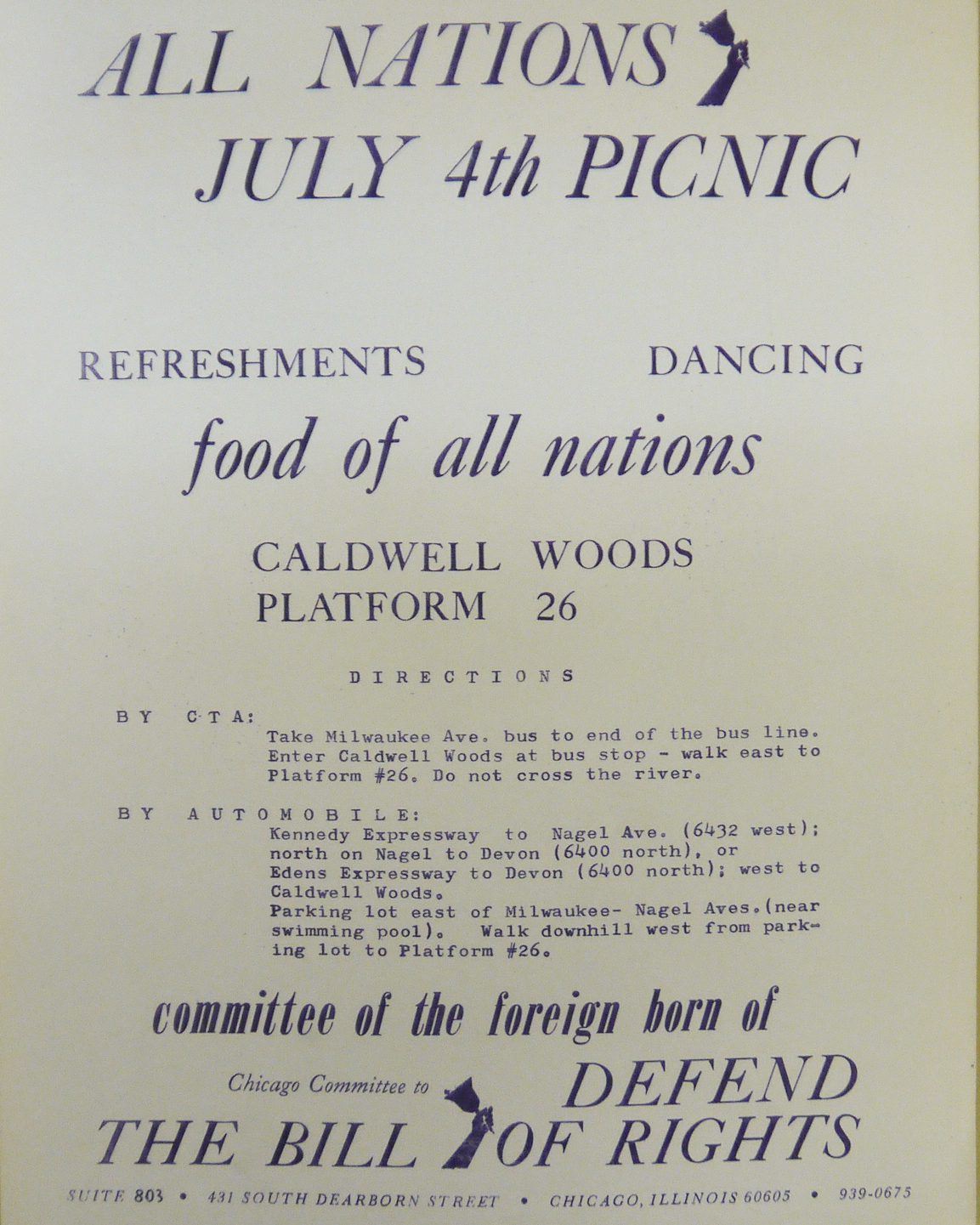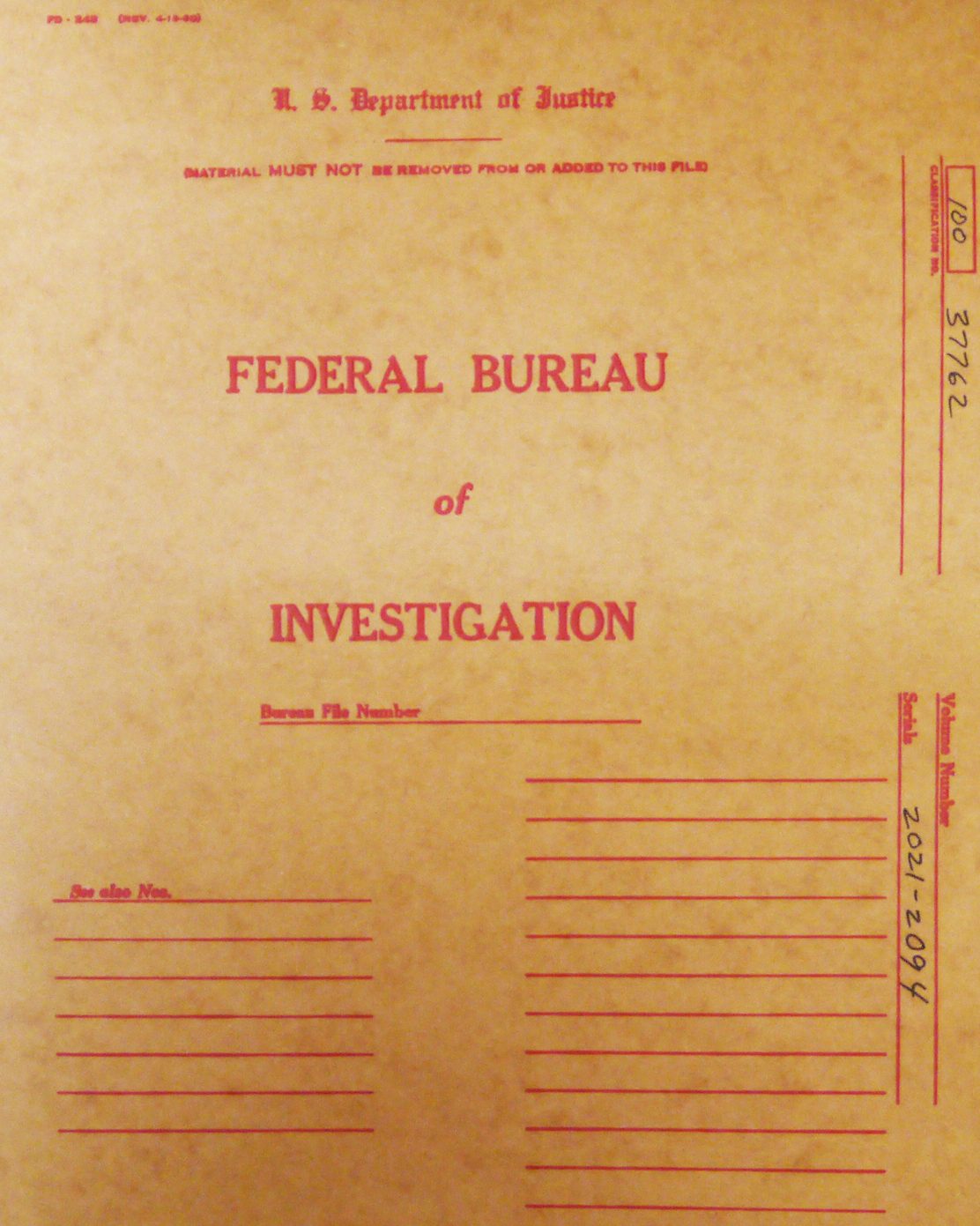CHM archives and manuscripts intern Matthew Norgard worked with archivist Julie Wroblewski this past summer to process the papers of the Chicago Committee to Defend the Bill of Rights (CCDBR). In this blog post, he details what he learned about the CCDBR and activism in the city more broadly.
Grassroots organizing is once again in the national spotlight, and the collection of the Chicago Committee to Defend the Bill of Rights at the Chicago History Museum is a valuable resource for those interested in the history of organizing and activism. As I exploring this newly processed collection, it became quite clear that people have been struggling for decades to protect the rights of all Americans in the face of hate.

The CCDBR collected evidence of hate groups’ activities in and around Chicago. This flyer from 1975 is for the National Socialist Party of America’s march protesting black families moving into white communities. All images by CHM staff
The collection provides decades’ worth of documentation thanks to the work of its two executive directors, Richard Criley and Rachel Rosen DeGolia. The CCDBR was formed in 1960 from the Illinois branch of the Civil Rights Congress and several other smaller organizations that focused on opposing the House of Un-American Activities Committee (HUAC). The CCDBR soon partnered with the National Committee Against Repressive Legislation (NCARL) to promote the abolishment of HUAC.

An editorial by the CCDBR protesting the Chicago HUAC hearings, c. 1947.
The CCDBR also worked to protect immigrant rights after it absorbed the duties of the American Committee for the Protection of the Foreign Born, which had helped to defend against and raise awareness about the McCarran-Walter and Smith Acts that stripped away the rights of immigrants and naturalized citizens. The two acts targeted members of groups labeled as subversive by the government, in particular the Communist Party USA. Individuals targeted saw the erosion of their rights and some faced deportation.

A flyer from a Fourth of July picnic celebrating American’s from all nations.
At the local level, the CCDBR fought against the repressive practices of the Chicago Police Department’s Red Squad division and, along with the Alliance to End Repression (AER), was instrumental in the successful lawsuit against the Red Squad. Due to the CCDBR’s defense of the civil rights of marginalized groups, it quickly drew the ire of the federal government and several hate groups, but continued to fight in the face of this extreme opposition. Following the dissolution of the HUAC, the CCDBR continued its partnership with NCARL and worked with the American Civil Liberties Union to raise awareness about efforts to revise the US Federal Criminal Code.

One of several files detailing the actions the FBI undertook against Richard Criley and the CCDBR.
The CCDBR collection features important documentation of the organization’s activities, as well as several of its forerunner organizations, such as correspondence, pamphlets, bulletins, court records, petitions, newsletters, and board meeting minutes from the Civil Rights Congress, CCDBR, NCARL, AER, and the American Committee for the Protection of the Foreign Born. Moreover, collection documents the activities of those who saw the CCDBR as a threat, such as files showing the FBI’s actions against Richard Criley and hate literature that was sent to the CCDBR.